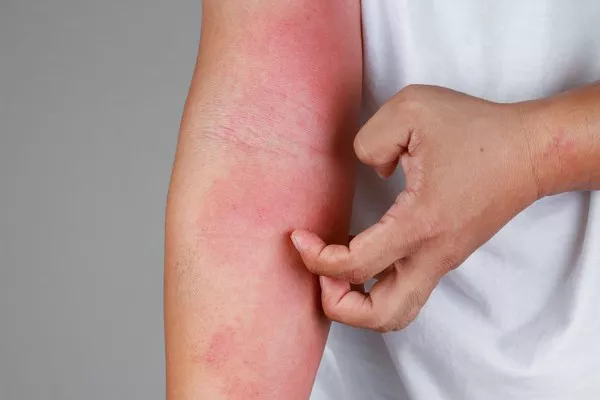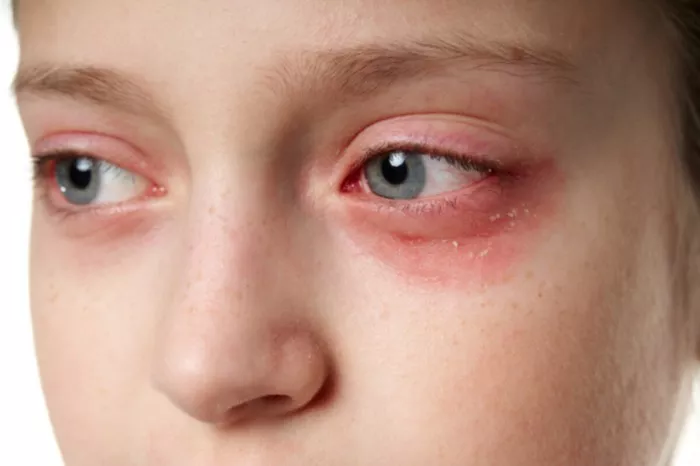Eczema, or atopic dermatitis, can manifest differently depending on skin tone. In individuals with dark skin, eczema often appears as dark brown, purple, or ash-gray patches, as opposed to the typical red, inflamed skin seen in lighter skin tones. This variation in appearance can complicate diagnosis, making eczema harder to detect in darker-skinned individuals. Furthermore, the condition can be more severe, and the long-term effects, including scarring and pigmentation changes, can be particularly distressing.
For people with darker skin, it’s essential to find healthcare providers who are not only familiar with how eczema presents on such skin but also equipped to manage triggers and provide effective treatments.
Eczema Prevalence in People of Color
Eczema affects approximately 31.6 million people in the United States, or about 10% of the population. It is a condition that transcends race and ethnicity, impacting individuals from all backgrounds. However, data reveals notable differences in how the condition affects various groups:
- 10% of Black or African American individuals
- 11% of White individuals
- 13% of Asian or Pacific Islander individuals
- 13% of Native American individuals
Despite these figures suggesting similar rates across ethnicities, further research from the National Health and Nutrition Examination Survey (NHANES) highlights a higher prevalence among certain groups. For instance, 19.3% of Black children are affected by eczema, compared to 16.1% of White children and 7.8% of Asian children. Studies also show higher rates of eczema in African and Pacific Island populations compared to those from Northern and Eastern Europe. However, rates alone don’t fully explain the variance in severity, which can be influenced by factors like diagnosis challenges, environmental triggers, and genetic predispositions.
Environmental Triggers and Risk Factors
Eczema is primarily caused by skin inflammation, with a variety of factors contributing to this condition. Key triggers include environmental influences, genetic factors, and an overactive immune system.
Common environmental triggers include:
- Climate and temperature changes
- Stress
- Allergens such as pollen or dust mites
- Skin irritants like certain fabrics and harsh soaps
Living in urban areas, where pollution, dust, cockroaches, and mold are more prevalent, can also increase exposure to eczema triggers. Certain communities may face a heightened risk due to their environmental conditions, leading to more frequent flare-ups.
Genetic mutations that affect skin health are more common in some ethnic groups, which may explain why certain populations experience more severe eczema symptoms. A 2021 study published in The Journal of Allergy and Clinical Immunology found that Black Americans suffer from more persistent and severe forms of eczema compared to their White counterparts.
Additionally, access to proper healthcare is a significant factor. Some individuals, particularly people of color, may struggle to find providers who understand the unique aspects of eczema in darker skin, which can delay diagnosis and treatment.
Recognizing Eczema Symptoms in Dark Skin
Eczema can look different on dark skin compared to lighter skin tones. While typical eczema symptoms like redness and dryness are more obvious on lighter skin, darker skin may show eczema as dark brown, purple, or ashen gray patches. This difference can lead to confusion and misdiagnosis, particularly when individuals seek online resources or consult healthcare providers unfamiliar with eczema’s presentation on darker skin.
Key eczema symptoms in darker skin include:
- Dryness and scaling
- Intense itching
- Swelling and warmth
- Open sores
- Skin cracking
People with dark skin may also develop small bumps (papules) or experience changes in skin pigmentation, such as hypopigmentation (lightening) or hyperpigmentation (darkening). Hyperpigmentation is particularly common in individuals of color and can linger long after eczema has healed, potentially leading to emotional distress, particularly among young adults and teenagers.
Misdiagnosis and Challenges in Treatment
Eczema is often underdiagnosed or misdiagnosed in people of color, partly due to the lack of training in dermatological care for darker skin tones. A 2018 study found that medical texts and educational resources overwhelmingly feature images of light-skinned individuals, with only 4.5% of images representing dark skin tones. This lack of representation may result in healthcare providers missing critical signs of eczema in darker skin, leading to delays in proper treatment.
In addition to the challenges of misdiagnosis, environmental factors such as poor nutrition, pollutants, and tobacco smoke may contribute to skin conditions that are mistaken for eczema, further complicating diagnosis and management.
Overcoming Barriers to Healthcare Access
Access to healthcare is another significant challenge for many Black and Latino individuals in the U.S. Data from the U.S. Department of Health and Human Services reveals that Black individuals are 70% more likely than White individuals to lack health insurance, with many facing geographic barriers to accessing quality care.
This disparity often results in delayed diagnoses and treatments, which can worsen eczema symptoms over time.
Managing Eczema with Dark Skin
The treatment for eczema is generally the same regardless of skin tone, but for those with darker skin, the approach may need to be more tailored. Since eczema symptoms are less visible on dark skin, it can be more difficult to diagnose the condition in its early stages, which means treatment may be delayed. Additionally, individuals with darker skin are more likely to experience long-lasting pigmentation changes after eczema flare-ups, which can be a source of ongoing concern.
The first line of treatment for eczema typically involves:
- Over-the-counter moisturizing creams to keep the skin hydrated
- Prescription topical treatments to manage inflammation
- Avoidance of known triggers such as allergens and irritants
For persistent pigment changes, patients may explore options such as over-the-counter skin lighteners, makeup, or silicone gel sheets. In-office treatments, including laser therapy, chemical peels, or microneedling, may also be used once the eczema itself has cleared up.
Finding the Right Care for Eczema
To receive the most effective care, individuals with darker skin may benefit from consulting dermatologists who specialize in skin of color. Organizations like the Skin of Color Society and BlackDoctor.org offer resources to help patients find qualified healthcare providers.
When meeting with a healthcare provider, it’s important to be prepared with questions about your condition and treatment options. Some questions to consider include:
- What triggered my eczema?
- How can eczema impact my long-term health?
- What treatment options are available?
- How long will it take before I see results?
Being proactive in learning about eczema and understanding treatment options can empower patients to manage the condition effectively.
Conclusion
Eczema can affect individuals of all skin tones, but its presentation on dark skin often differs significantly, making it harder to diagnose and manage. People of color, especially those with darker skin tones, may face additional challenges, including misdiagnosis, delays in treatment, and distress caused by pigmentation changes. It’s crucial for both patients and healthcare providers to understand the unique aspects of eczema on dark skin to ensure timely and effective treatment.
If you suspect you have eczema, it’s vital to seek care from a provider experienced in treating skin of color. By educating yourself and working with a knowledgeable dermatologist, you can take proactive steps toward managing eczema and minimizing its impact on your quality of life.
Related topics:


























